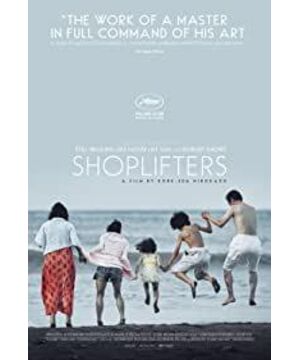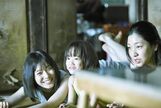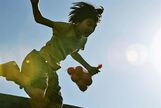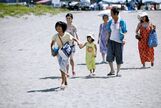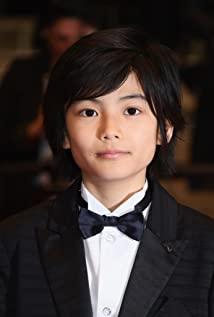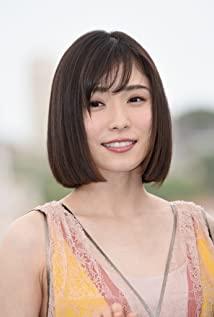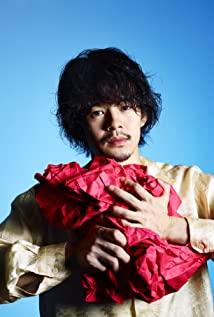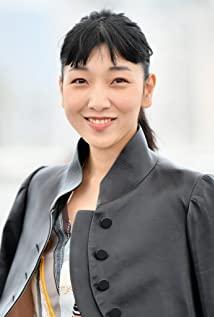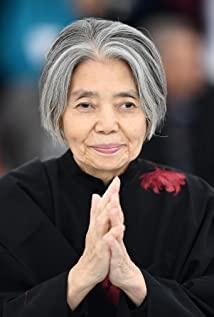Indeed, as Hirokazu Kore-eda admitted, he learned a lot more from Hou Hsiao-hsien than from Ozu. Looking at the scheduling of the actors in "The Thief Family", you can't find Hou Hsiao-hsien's shadow: with Ojin's control over the actors, the so-called on-the-spot performance is impossible to allow, so it is absolutely impossible for him to shoot that" Mom" and "son" burp each other and laugh after drinking soda. This is what Hou Hsiao-hsien taught all realist directors, the most "straightforward" but always the most vital shooting method: if you want to shoot a story that is close to reality, then create a real space where the characters live, Throw the actor into it and let it react naturally. According to the information conveyed by some shots and the understanding of Hirokazu-eda, we have reason to believe that this is the main shooting method of "The Thief Family". At the same time, the script of Hirokazu Kore-eda did provide some convenience for this kind of shooting: the actors abandoned their original lives and gathered in this hut to shoot, just like the characters in the script, they "temporarily reorganized" a family. ? It is precisely these actions and interactions that are so intuitive that they are completely impossible to perform, that makes the two-hour video of "The Thief's Family" so convincing and reliable.
So it was Hirokazu-eda who confidently aimed the close-up at Sakura Ando's face. Both he and the audience knew that when "Mom" wiped the tears from her eyes over and over again, she must be thinking about the past that she and her two children "really" experienced. It's so convincing and moving, because at least in this moment, and many, many other moments like that, that are cut or not cut into the film, she's not acting at all, really. This is the power of film, only a camera can capture this kind of real scene, and only a few directors understand and know how to control this power.
Therefore, we are delighted to see that it was Hirokazu Koreeda who did not become a big-screen TV drama director who earned audience tears by tricking characters, sensational plots, and vulgar reversals, although his "The Thief Family" did have a slightly obvious effect. Deliberate character relationship settings and increasingly complex and dramatic plot arrangements. On the contrary, after the exploration of a series of films after "Never Stop", he seems to gradually understand his strengths and weaknesses, thus reaching the mature and warm realm seen in "The Thief's Family". It is true that it was Hirokazu-eda who did not want and did not have the ability to move towards absolute realism as decisively as Hou Hsiao-hsien. On the contrary, his screenwriting talent is enough to support him to write such complex scripts as "Father Like Son", "Haijie Diary" and even "The Third Suspect", and he obviously does not want to give up this talent. So what we see is a "thief's family" that has both sides. You can either treat it as a melodrama, sighing with the fate of the characters in the screenwriter's pen, or you can immerse yourself in its slow rhythm, and carefully appreciate every shot, A little warmth in the scenes and the actions of the characters. Interestingly, although the shooting style is exactly the same as that of Hou Hsiao-hsien, in the final film, what Hou captures will always be the most everyday, the most "anti-drama" moment, and the most common fixed camera position will always be selected. It was Hirokazu Kore-eda that captured it, but it was the highlight moment with the clearest and most intense emotion, and the selected shooting angle was always the most "smart" and most expressive. So what is the result of this synthesis and "moderation"? Looking at it now, it is probably that during the two-hour viewing process, I will keep complaining about "pretentious", "deliberate", "artisan" and "disliked", but after Xiangtai finally left, on the bus The moment he silently said "father", tears would still flow irresistibly. Those pearls of incomparable reality are linked together by scenes, shots, props and plots, and become a polyphonic hymn to the nobility of human nature and the fetters of emotion.
Going a little further, it is the difficulties and explorations that Hirokazu-eda has experienced. In fact, it is also the dilemma that all realist directors will encounter: when you have moved the world because of a certain movie and become famous, it is always accompanied by more and more Many professional actors and filming funds. You are more and more able to create the scenes you want out of thin air and realize every bridge in your mind, and your life is getting farther and farther from the so-called "reality" in the intertwining of gongs and chips. At this time, the original shooting method will inevitably be abandoned, and the question of "how to shoot" may be more important than "what to shoot", and the so-called "realism" is indeed the art form of film that can never be Bypass tone. Overall, this Palme d'Or is also a testimony to Hirokazu Kore-eda's quest, and I hope he can finally create his own graceful dance moves between the film's delicate balance of truth and falsehood. This is also a blessing for fans.
View more about Shoplifters reviews


